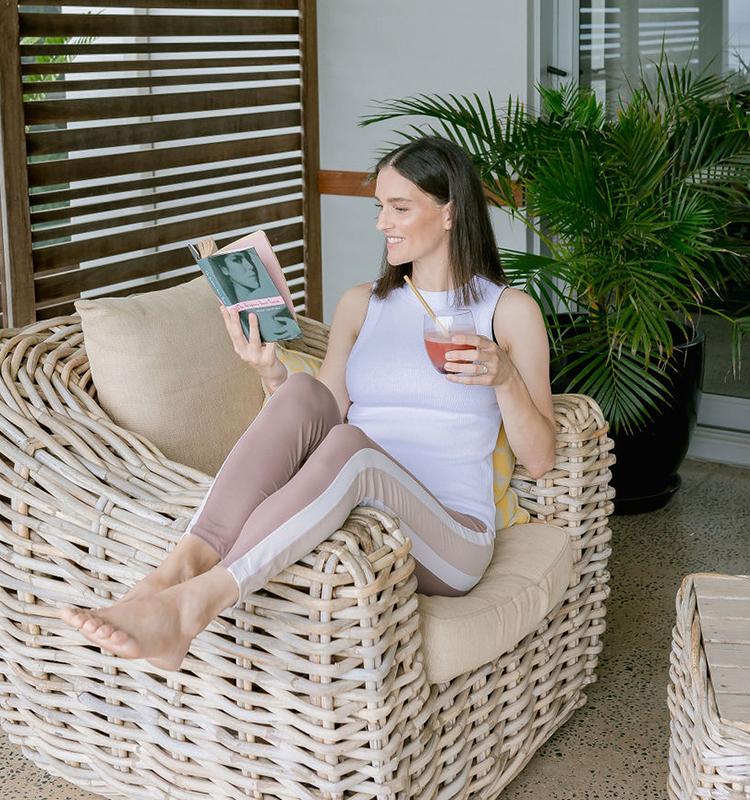They’re considered buzzwords in the wellness world and surrounded by hype, but the art of meditation and mindfulness have been practiced for thousands of years and really can bring a sense of peace and power over pessimism.
Mastering meditation takes a bit of practice – but once you’re tuned into it, it becomes easier to maintain and many people can’t live without a morning or evening meditation session.
What is meditation?
Meditation refers to a state where your body and mind are consciously relaxed and focused.
According to the National Center For Complementary and Integrative Health, some types of meditation involve maintaining mental focus on a particular sensation for a given period of time such as breathing, a sound, a visual image, or a mantra, which is a repeated word or phrase.
Whereas other forms of meditation include mindfulness, which involves maintaining attention or awareness on the present moment, rather than focusing on the past or future – plus, it encourages you to be in the moment without making judgments.
The benefits of meditation
Meditation is often in the wellness spotlight – and for good reason. This simple practice has astounding benefits, especially currently, where we're all rushing from one thing to the next and essentially living in a constant state of stress. This can lead to burnout, anxiety and depression.
On a positive note, studies show that regular meditation (even shorter sessions of 10 to 13 minutes) brings increased awareness, focus, and concentration, and contributes to a more more positive outlook on life. It also helps to improve memory and reduce anxiety. This is because the practice of meditation creates a detachment that dissolves negative thinking. You may still have niggling worries, doubts or fearful thoughts, but mediation gives you the power to release negativity and not get caught up in it, which is an essential tool to have nowadays.
From a medical point of view, meditation has been shown to lower blood pressure, help people control overeating and manage their weight, and manage insomnia.
How to start meditating
Follow these 7 steps to start meditating with ease
1 Get into a comfortable position
Start by wearing loose-fitting clothes and get into a comfortable position that allows you to relax and focus. This may be while sitting cross-legged, standing, lying down or even walking. The most important thing is to fully relax your entire body and to breathe naturally throughout the session.

2 Choose the right space
If you’re meditating at home, choose a calm, quiet space with little to no distractions such as a bedroom or living room. For some people, dim lighting, aromatic candles, and soft music help to set a relaxing scene, or you could choose to meditate in silence.
3 Close your eyes...
if you’re sitting or lying down in a quiet spot, close your eyes and focus your mind on your breath. If your eyes are open, you could also try focusing on a certain object or thought.
4 Breathe in and out
As you’re breathing in and out, feel your body relax (as you notice the rise and fall of your breath and chest) and note the sensation the air makes.
5 Start releasing tension
If you don’t want to focus entirely on your breathing, concentrate on your body and name every part of your body whilst focusing your consciousness on that part. Mentally visualise releasing tension in your neck and shoulders, arms, hands, fingers, feet and so on.
6 Focus your mind
When your mind wanders, slowly bring it back to your breath and body. Focusing on these two things as you lie in a calm state is the practice of mindfulness.
7 Engage your senses
After five to 10 minutes, gently open your eyes and take in what you can see, hear, feel and smell.
And that’s it – you’ve mastered a simple meditation that you can use anywhere or anytime you’re feeling stressed, tense or overwhelmed. We love the fact that meditation gives you a new perspective on whatever’s happening in your life and helps you to take a step back from it all.


